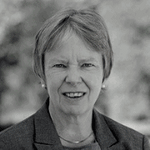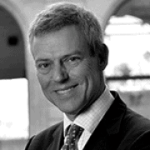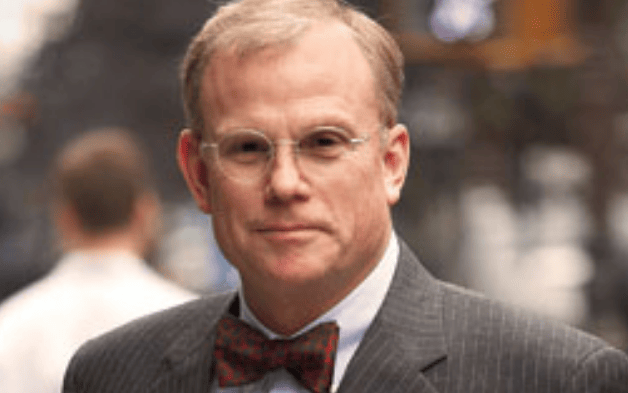How are investors tackling the issues of de-globalisation and the impact on their portfolios?

Kate Barker
Chair, British Coal Staff Superannuation Scheme (United Kingdom)
Kate Barker is chair of trustees for the British Coal Staff Superannuation Scheme, and chair elect of the Universities Superannuation Scheme. She is also a non-executive director at Taylor Wimpey and Man Group. Previously, she was a member of the monetary policy committee at the Bank of England and she has also carried out much public policy work. Barker was an external member of the Bank of England’s monetary policy committee for three terms between 2001-2010. During that time, she was commissioned by the government to conduct a major independent policy review of UK housing supply, and subsequently a review of land use planning.
Barker was chief economic adviser at the CBI between 1994-2001. From 2010 to 2017 she was an non-executive director of the Yorkshire Building Society, and she was also a commissioner of the National Infrastructure Commission between 2017-2020.
In 2014 she was made a Dame for services to the economy.
James Davis is chief investment officer of OPTrust, one of Canada’s largest pension funds with net assets at almost $20 billion and investment professionals in Toronto, London and Sydney. He joined OPTrust in 2015 and leads the organisation’s investment strategy and oversees its diversified portfolio spanning the globe with public market, private market, infrastructure, and real estate assets in North America, Europe, developed Asia and emerging markets. Davis has over 25 years of strategic investment planning and leadership experience, including proven results in liability driven investing and portfolio design. Most recently, he held the role of vice president, strategy and asset mix and chief economist at Ontario Teachers’ Pension Plan (Teachers’). Before joining Teachers’, he was president of FuturesTrend Capital Corporation in Prince Edward Island and vice president and head, global fixed income and currencies at RBC Global Investment Management in Toronto. He is widely recognised as an engaging speaker in a broad range of forums within the pension industry, and is known for his insights on global economics, portfolio construction and investment strategy. In addition to degrees in mathematics and meteorology, James holds an MBA in Finance from Dalhousie University and is a CFA charterholder.
Olivier Rousseau was appointed to his current role in November 2011. He also chairs the asset manager selection committee. In 1986, he joined the French Treasury in Paris, where he held various positions, including deputy head of division and head of division. He worked 11 years for BNP Paribas in international banking and finance in Paris, Tokyo, London, Singapore, Hong Kong and Sydney. He also served on the resident board of directors of the European Bank for Reconstruction and Development in London and as regional economic counsellor at the French embassy in Stockholm. Rousseau graduated from the French National School of Administration in 1986. He has earned master's degrees in law and economics, and a bachelor's degree in political sciences, from the University of Aix-en-Provence.
Amanda White is responsible for the content across all Conexus Financial’s institutional media and events. In addition to being the editor of Top1000funds.com, she is responsible for directing the global bi-annual Fiduciary Investors Symposium which challenges global investors on investment best practice and aims to place the responsibilities of investors in wider societal, and political contexts. She holds a Bachelor of Economics and a Masters of Art in Journalism and has been an investment journalist for more than 25 years. She is currently a fellow in the Finance Leaders Fellowship at the Aspen Institute. The two-year program seeks to develop the next generation of responsible, community-spirited leaders in the global finance industry.
Key takeaways
Kate
- One of the mistakes we made at the Bank of England was that we thought the GFC would be over more quickly and we thought we could fix it on our own.
- The GFC wasn’t really a global crisis. This time the crisis truly is global, and it’s more important that we get it right.
- Central banks are less relevant in the pandemic because this is not a banking crisis. Thus far, policy response has broadly been viewed in a favourable light. Going forward policy may be less popular which will provide a significant challenge. Central banks will be concerned about the potential for stagflation
- Do we really need the government to play a bigger role? The private sector has been remarkable throughout the crisis and they should not be taxed out of existence or prosperity to pay for the stimulus measures.
James
- This is the most difficult investing period of my 30-year career because there is so much uncertainty. Monetary policy is a blunt instrument and has probably reached its peak effectiveness. This contributes to significant policy risk.
- We shouldn’t be debating MMT, we should be debating the governance around it.
- It is easy to talk about building a portfolio that is resilient enough to withstand any environment but this is getting harder and harder.
- Given that many defensive assets don’t earn a sufficient return, balancing portfolio resilience and return can be problematic.
Olivier
- There is much cause for pessimism:
- Asset classes are exhausted and expensive in part because our frame of thinking is outdated.
- Trust between nations is one of the most problematic issues.
- We have realised that we have been short-changed by China.
- We will have to choose between the US (who are letting us down) and China (who will not be a better master than the US).
- Civil unrest continues and populism remains to be about me, me and I.
- The EU suffered through the GFC (even though it started in the US) and also through COVID-19 (even though it started in Asia).






